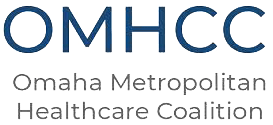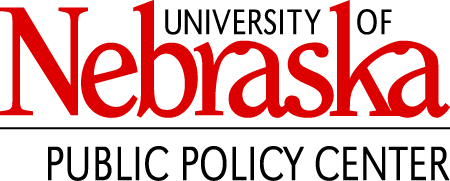Great Plains Disaster Behavioral Health Conference
The Great Plains Disaster Behavioral Health Conference is for psychiatrists, psychologists, social workers, mental health care providers, public health officials, nurses, clergy, emergency managers, and first responders to learn and recognize how to prepare and respond to the psychological effects of disaster and mass casualties.
2020 Conference
Long-Term: It’s Everyone’s Job
This year’s conference will focus on learning how to prepare and respond to the psychological effects of disaster and mass casualties.
Application has been made for APA Continuing Education credits.
July 22-23, 2020
Zoom Conference
Objectives
1
Discuss the role of behavioral health in long-term disaster recovery.
2
Describe the role of various state and volunteer organizations in individual and community disaster recovery.
3
Demonstrate how behavioral health professionals can work with state and volunteer organizations to assist with individual and community recovery.
Conference Speakers

Jane Cage
Principal of InsightFive22, Adjunct Instructor at FEMA,
and Former Chairman of Joplin’s Citizens Advisory Recovery Team
Jane, a long-time Joplin resident, served as the volunteer chairman of the Citizens Advisory Recovery Team (CART) formed after the May 2011 tornado. As CART leader, she led the group in listening to citizens about their vision for a recovered Joplin. The resulting report became the long-term recovery plan for Joplin.
Jane has consulted on projects around long-term recovery, resilience, and as a facilitator as the principal of InsightFive22. She is an adjunct instructor at the FEMA Emergency Management Institute for classes based on community long-term recovery and is certified to teach E0210 and L0205 – Disaster Recovery: The Role of the Local Community.

Kate Speck
Senior Research Manager at
University of Nebraska Public Policy Center
Dr. Kate Speck has more than 28 years’ experience working in the field of addiction, including a Masters in Addiction Counseling. Kate received her Ph.D. in Community & Human Resources and her M.A. in Adult & Continuing Education from the University of Nebraska-Lincoln. She received her B.A. in Human Relations from Doane College.
Lisa Ashby
Chair, Voluntary Organizations Active in Disasters
Stacey Hoffman, Ph.D.
Senior research manager, University of Nebraska–Public Policy Center
Stacey Hoffman focuses on disaster behavioral health response planning, risk and crisis communication, public health monitoring system evaluation, program evaluation, and program management in her work at the NU Public Policy Center. She received her Ph.D. and M.A. in psychology from UNL, and her B.A. from Cornell College.
Nathan Mueller, Ph.D.
Cropping systems Extension educator,
Nebraska Extension
Nathan Mueller earned his B.S. and M.S. in agronomy from the University of Nebraska-Lincoln and a Ph.D. in agronomy from Kansas State University. His thesis was on sediment and phosphorus movement in an agricultural watershed and his dissertation on soil fertility for corn and soybean. Previously, Nathan worked as a resource specialist team leader with the Indiana State Department of Agriculture–Soil Conservation Division and as an assistant professor and an extension agronomist for South Dakota State University.
Chris Schroeder
Long-term recovery specialist, Nebraska Emergency Management Agency (NEMA)
Chris Schroeder serves as long-term recovery specialist and voluntary agency liaison with the Nebraska Emergency Management Agency. In this role, since last year and in the 2019 flooding aftermath, he coordinates the Governor’s Long-Term Recovery Task Force and the state’s Food Security Task Force, and assists with recovery operations, individual assistance, and mass care efforts around Nebraska. Originally from West Virginia, Chris served in similar disaster recovery capacities around the Appalachian region following the West Virginia flood and the forest fires in the Great Smoky Mountains of Tennessee, both in 2016. Before that, he led a small nonprofit in repairing and rebuilding homes for people living in poverty around Appalachia, the operations of which became the structure of FEMA’s Rapid Rebuild program.
Mikayla Johnson
Network transition administrator, Nebraska Department of Health and Human Services (DHHS)
Mikayla Johnson is the network administrator for the Division of Behavioral Health (DBH) within Nebraska’s Department of Health and Human Services (DHHS). Part of her role within DBH is the behavioral health disaster lead, working with sister divisions in DHHS, University of Nebraska’s Public Policy Center, six regional Behavioral Health Authorities, and other state agencies when natural or man-made disasters occur. Mikayla also has experience with the Federal Emergency Management Agency (FEMA), Substance Abuse and Mental Health Services Administration’s (SAMSHA) Crisis Counseling Assistance and Training Programs grants. The State of Nebraska has again been awarded the Immediate Services Program grant for COVID-19.
Alice Mitwaruciu, Ph.D.
Assistant director, Counseling and Psychological Services (CAPS), University of Nebraska-Lincoln (UNL)
Alice Mitwaruciu is a licensed psychologist who specializes in trauma, PTSD, and crisis intervention and management. She earned her Master’s and Ph.D. in psychology at the University of Utah and her Master’s in education at the University of Idaho. In 2019, she joined the Counseling and Psychology Services (CAPS) at the University of Nebraska-Lincoln as the assistant director.
Conference Materials

Save-the-Date Postcard

Brochure

Exercise

Conference Program
Contacts
University of Nebraska Public Policy Center
Disclaimer
This website is part of a coordinated effort on behalf of the U.S. Federal Government and the Nebraska Department of Health and Human Services Division of Public Health, Division of Behavioral Health, and the University of Nebraska Public Policy Center. Funding was made possible [in part] by U3REP190555 from the Office of the Assistant Secretary for Preparedness and Response (ASPR). The views expressed in written materials or publications do not necessarily reflect the official policies of the U.S. Department of Health and Human Services or the Nebraska Department of Health and Human Services, Division of Public Health; nor does mention of trade names, commercial practices, or organizations imply endorsement by the U.S. Government or the State of Nebraska.








